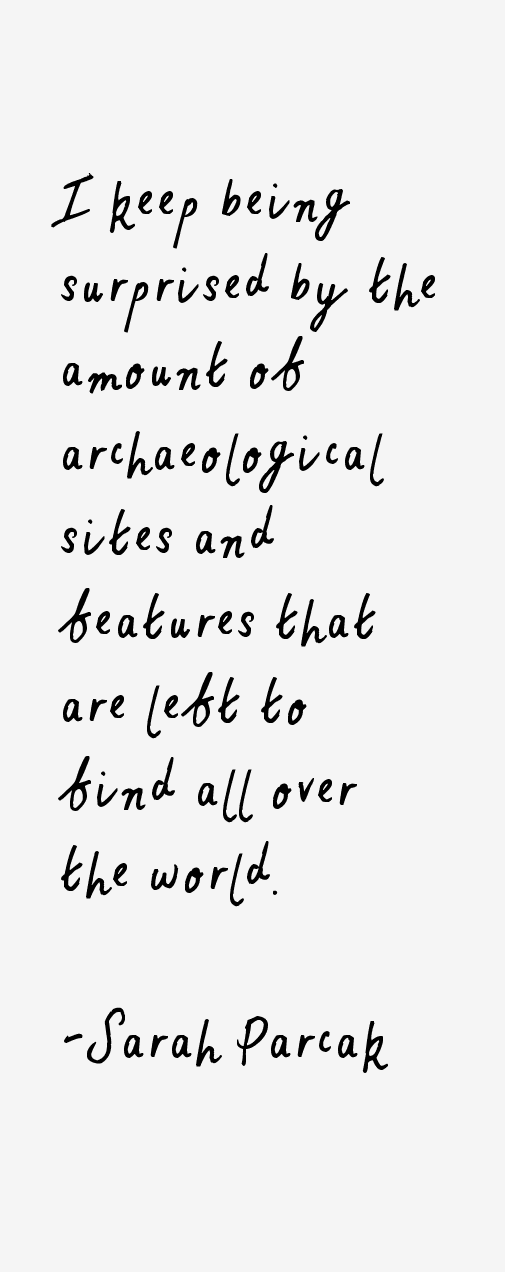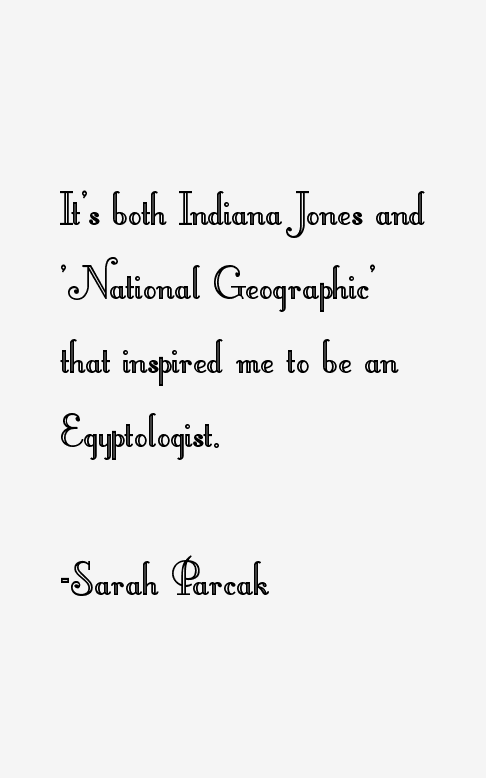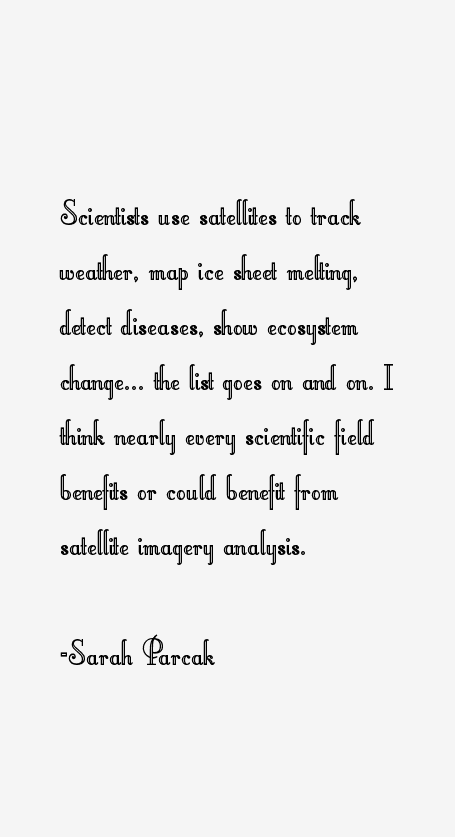Sarah Parcak Quotes & Sayings (Page 2)
Sarah Parcak quotes and sayings page 2 (scientist). Here's quote # 11 through 20 out of the 30 we have.
“When you think about the scale of human populations all over the world and the fact that there's so much here, really, the only way to be able to visualize that is to pull back in space... It allows us to see hidden temples and tombs and pyramids and even entire settlements.”
“When people initially think of the term 'space archaeologist,' they think, 'Oh, it's someone who uses satellites to look for alien settlements on Mars or in outer space,' but the opposite is true - we're actually looking for evidence of past human life on planet earth.”

“I keep being surprised by the amount of archaeological sites and features that are left to find all over the world.”

“It's both Indiana Jones and 'National Geographic' that inspired me to be an Egyptologist.”
“Itjtawy was ancient Egypt's capital for over four hundred years, at a period of time called the Middle Kingdom about four thousand years ago. The site is located in the Faiyum of Egypt, and the site is really important because in the Middle Kingdom there was this great renaissance for ancient Egyptian art, architecture and religion.”

“Scientists use satellites to track weather, map ice sheet melting, detect diseases, show ecosystem change... the list goes on and on. I think nearly every scientific field benefits or could benefit from satellite imagery analysis.”

“Archaeologists gave the military the idea to use aerial photographs for spying and field survey. We are fortunate that the spatial and spectral resolutions of the imagery available to us are so broadly useful for archaeology.”
“If you really want to be a good archaeologist, you have to understand ancient DNA; you have to understand chemical analysis to figure out the composition of ancient pots. You have to be able to study human remains. You need to be able to do computer processing and, in some cases, computer programming.”
“You just pull back for hundreds of miles using the satellite imagery, and all of a sudden this invisible world become visible. You're actually able to see settlements and tombs - and even things like buried pyramids - that you might not otherwise be able to see.”
“We've got to map all of our ancient history before it's gone because, let's face it, if we don't have a common heritage to share, something to get excited about, then what are we living for?”
Sarah Parcak Quotes Rating
No Ratings Yet
Leave A Comment
























